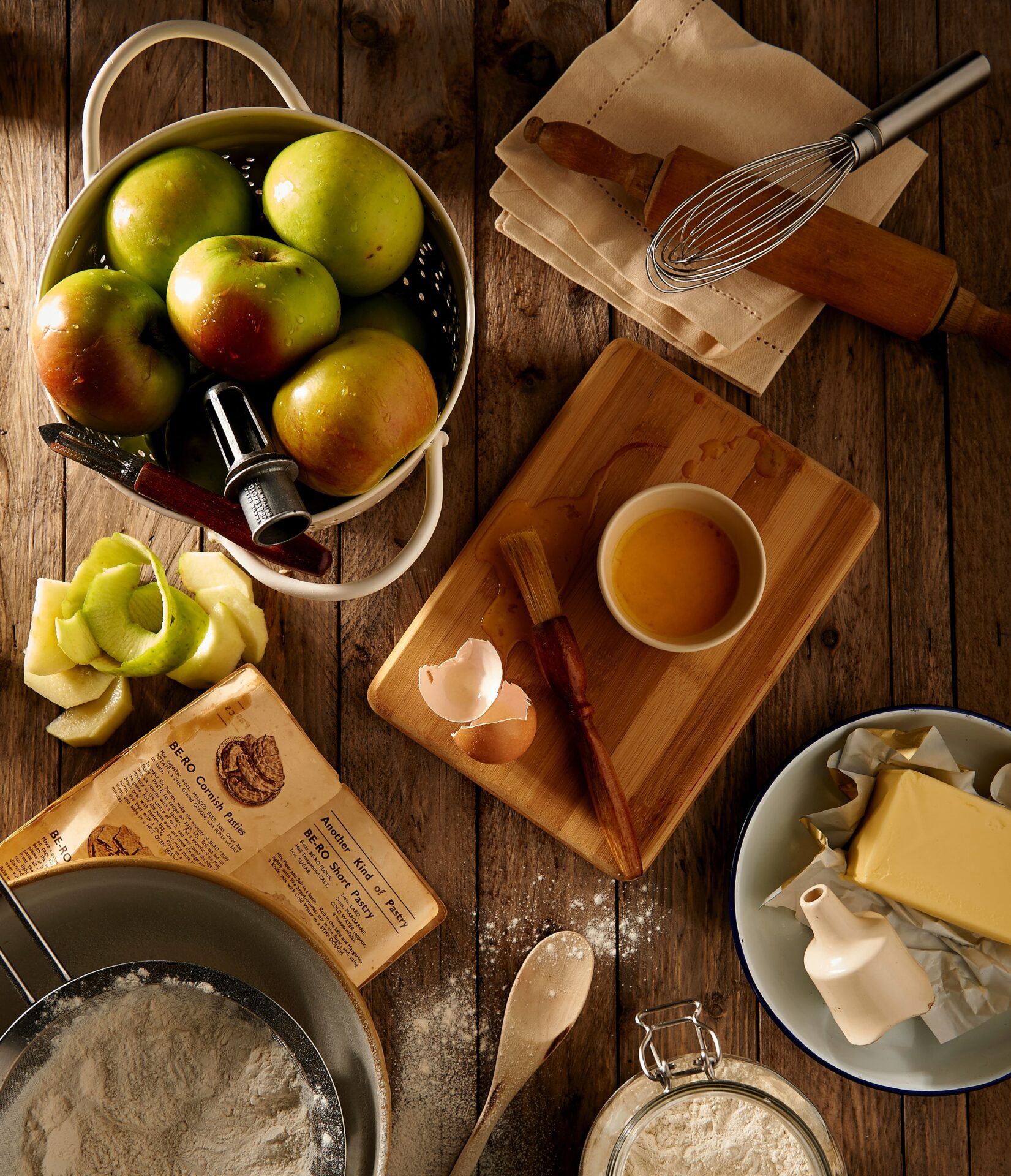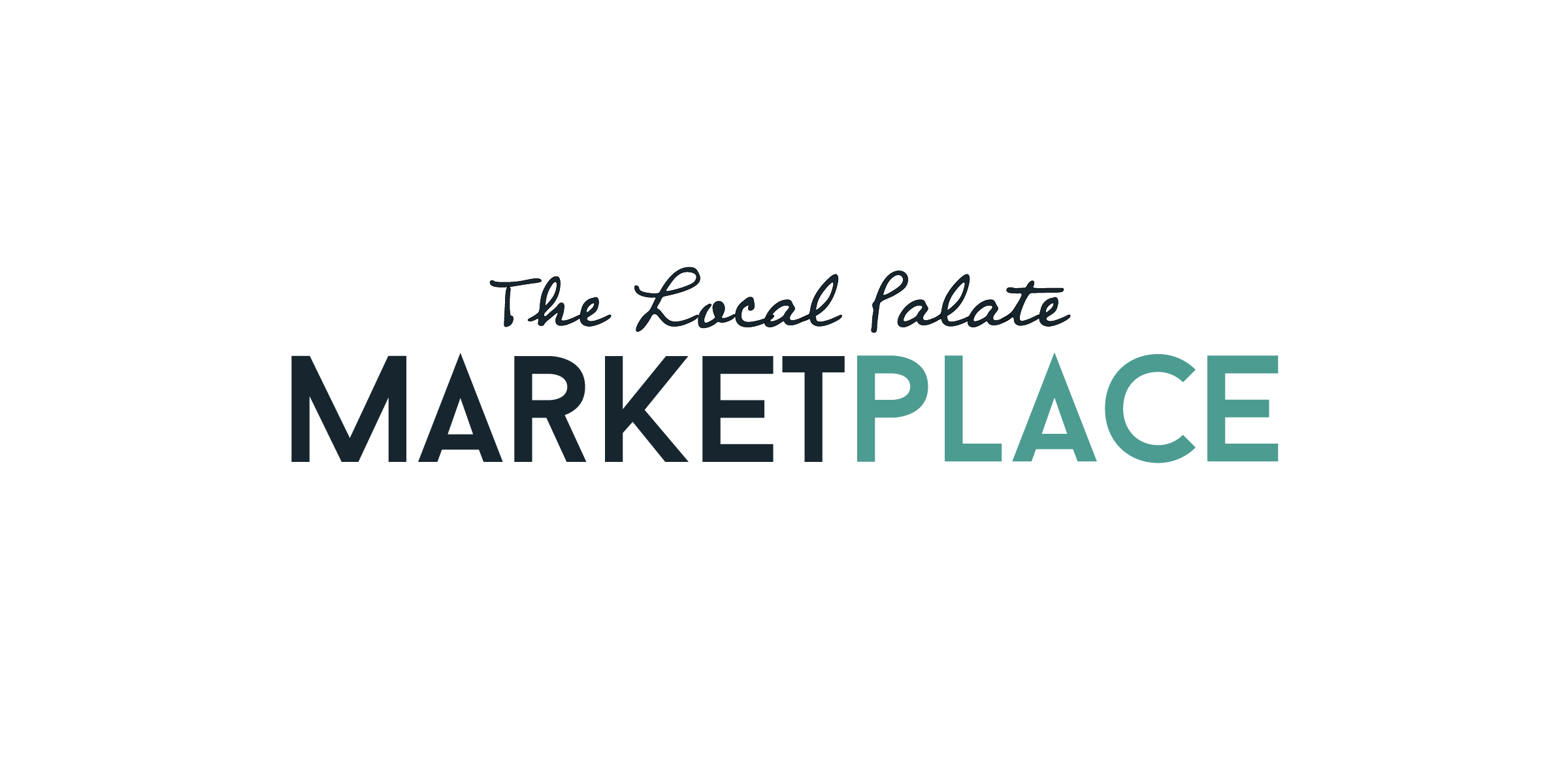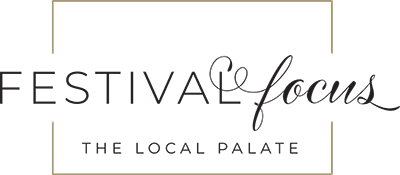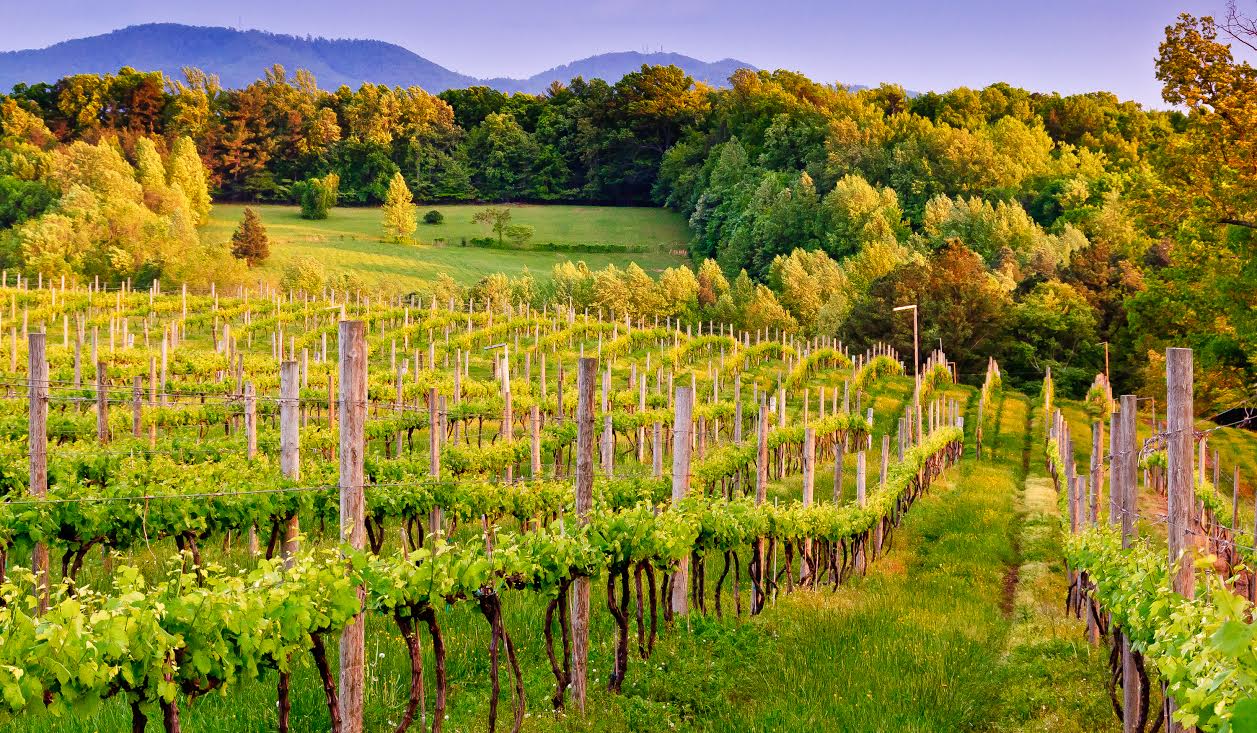The legacy, quality, prestige, and viticultural renown of European wines first inspired Thomas Jefferson to explore the world of wine from his Albemarle County home in Charlottesville, Virginia. It wasn’t until the 1980s, however, that Virginia plant breeders honed the state’s unique terroir by experimenting with hybrids that quickly yielded successful and competitive varieties. The subsequent planting of vinifera grapes, like chardonnay and cabernet franc, alongside these innovative hybrid wines marked a reawakening in Virginia. Explore the points along the Monticello Wine Trail today, and you’ll see how the state’s wine legacy continues to be written as each harvest solidifies the region as one of the most acclaimed wine destinations along the East Coast—and even the world.
Eight American Viticulture Areas (AVAs) now reside within the state’s ten winemaking regions. The oldest is the Monticello AVA, established in 1984. Home to some of the state’s earliest vineyards surrounding the city of Charlottesville, this designated winemaking area draws increasing numbers of visitors and winemakers to the foothills of the Blue Ridge Mountains each year.
During Virginia Wine Month, you’re invited to find your own perfect pairing along the Monticello Wine Trail, beginning with some of the year’s top wineries and vineyards.
Three Stops Along the Monticello Wine Trail
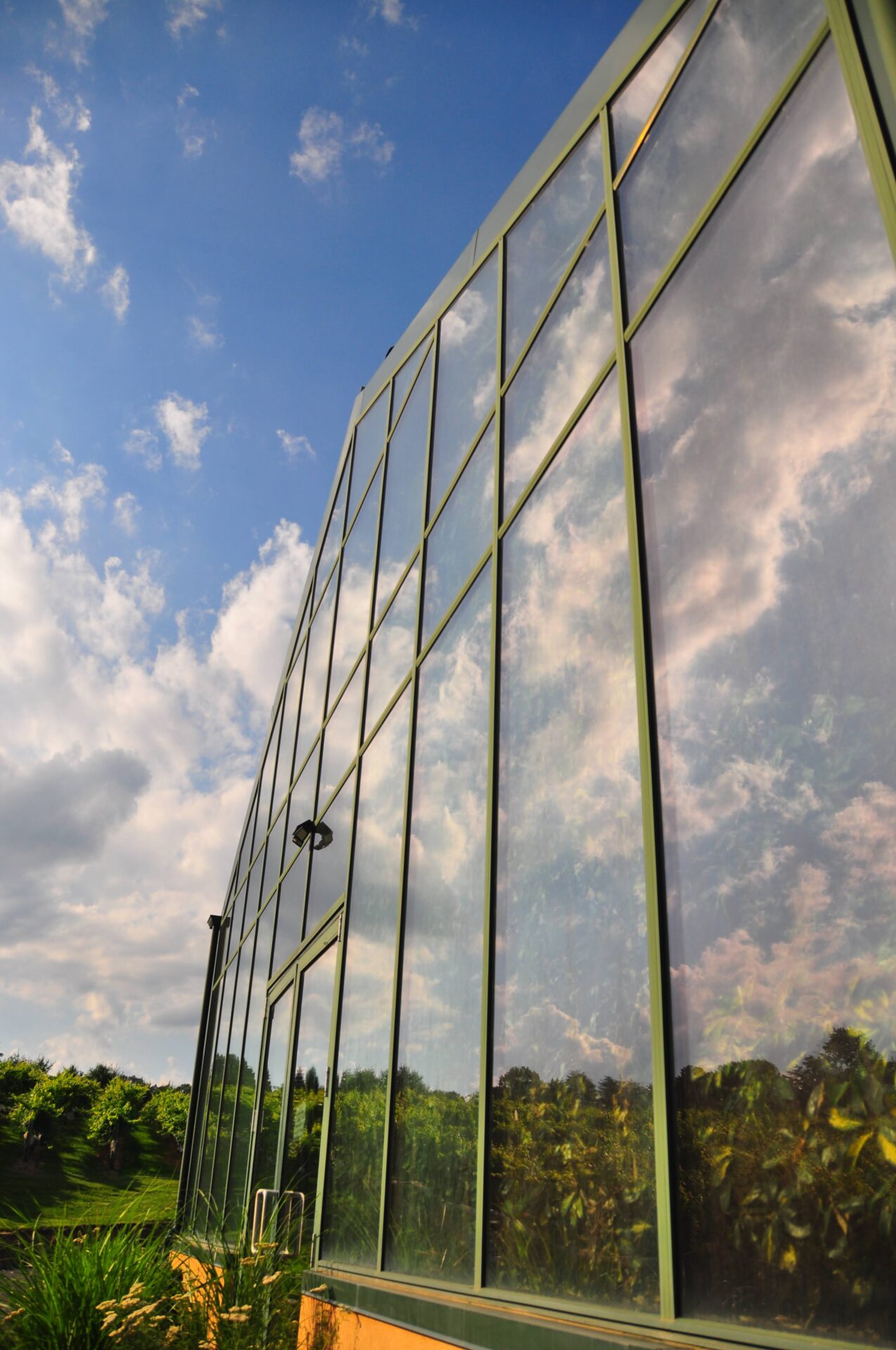
Glass House Winery
Leave all preconceived notions of a traditional winery experience behind when visiting this aptly named estate in the rolling hills of Free Union, Virginia. The impressive plant conservatory of Glass House Winery adds a tropical flair to the Monticello Wine Trail, inviting an exciting interpretation of the local landscape.
Most of Glass House’s wines, distributed from the winery itself and across the state, are developed entirely from estate-grown grapes like petit manseng, cabernet franc, and petit verdot. The suggested pairing? Artisan chocolates, specifically those crafted by Glass House’s in-house chocolatier. Take your pick from adventurous flavors like cherry chili, raspberry champagne, or lil’ marg—a white chocolate morsel infused with tequila, orange liqueur, and fresh lime juice.
For an extended stay, enjoy views of the vineyard’s 15 acres from an on-site bed and breakfast featuring five bedrooms, a saltwater pool, and hot tub. This innovative concept is the perfect destination for wine and chocolate enthusiasts in search of a palate challenge and tropical getaway.
Hark Vineyards
In recent years, sustainability of wine production has become an increasingly significant point of distinction for many growers around the world. Hark Vineyards is especially committed to renewable energy practices—upon the completion of its winery building in 2019, Hark Vineyards added a 103 kilowatt solar panel system atop its roof.
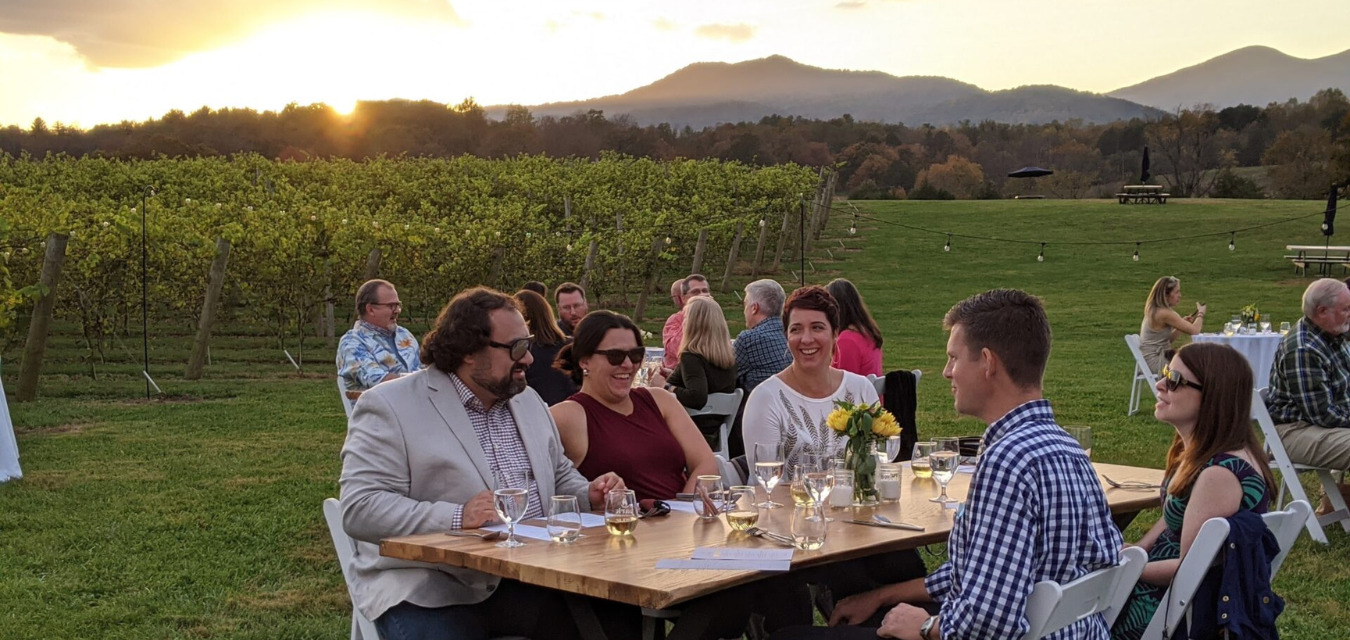
Today, this system powers the winery’s operations for much of the year, including the growth, harvest, and bottling of Hark’s seven major wines and the six private labels of winemaker Jake Busching. The in-house tasting menu changes monthly, featuring seven wines in a range from light whites to full-bodied reds from eight grape varieties. Throughout a majority of the year, Hark Vineyards is open to the public with live music concerts, food truck spotlights, and picnic baskets galore—cheeses, charcuterie, crackers, and chocolate are available for purchase in the tasting room, selected carefully to complement tasting experiences by the glass, bottle, or two-ounce carafe flight.
Stinson Vineyards
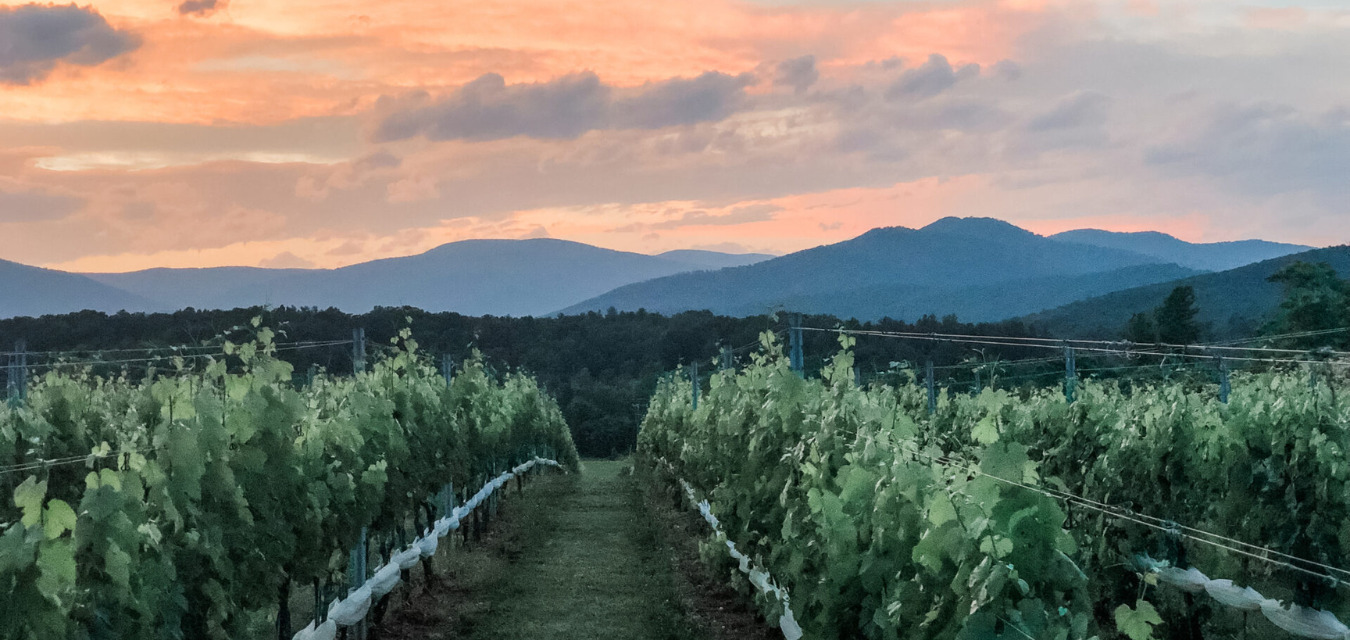
Rachel Stinson Vrooman is a fan of French “garagiste” wineries: small scale producers whose wine production could, in theory, fit into a small garage. Stinson Vineyards—driven by Rachel, her father, Scott, and her husband, Nathan Vrooman—embodies this passion quite literally. Housed inside an old three-car garage, this family and wine-maker owned estate specializes in wines with a distinct French influence, produced in small batches. Favoring the subtlety and complexity of old-world wines, the Stinsons integrate elements of the local Monticello AVA terroir with additional grapes sourced as far north as the Shenandoah Valley and as close as Crozet. The result of such a highly technical production is recognizable grape varieties, yet with the occasional note of added citrus complexities.
Enjoy bottle service, glasses, and wine flights in the tasting room. From May to September, “Tailgate Thursday” features live music series. Nearby, the Inn at Stinson Vineyards presents a luxurious bed and breakfast stay with panoramic views of the Blue Ridge Mountains—overnight guests may reserve an intimate, Stinson wine-paired dinner featuring a seasonal tasting menu.
Check out this complete list of wineries in Charlottesville and Albemarle County to celebrate Virginia Wine Month.
share
trending content
-
FINAL Vote for Your Favorite 2025 Southern Culinary Town
-
Get To Know Roanoke, Virginia
-
A Brief History of Shrimp and Grits
by Erin Byers Murray -
New Myrtle Beach Restaurants Making Waves
-
FINAL VOTING for Your Favorite Southern Culinary Town
More From Partnered
-
Explore the Monticello Wine Trail in Charlottesville, Virginia
-
A Local’s Guide to Charlottesville
-
Virginia Au Naturel


